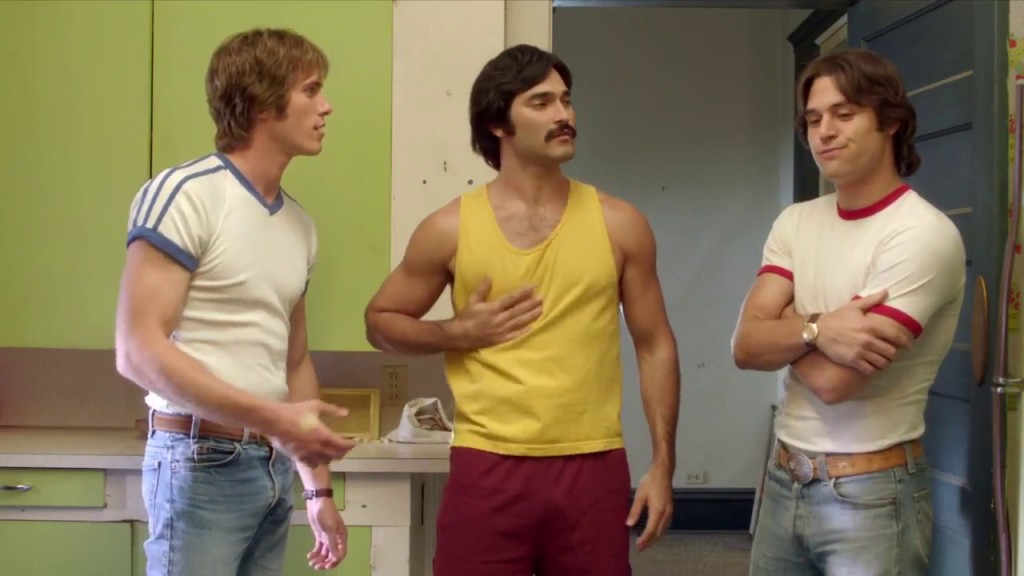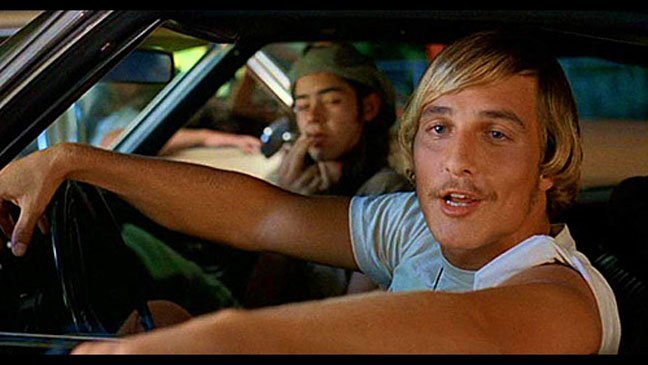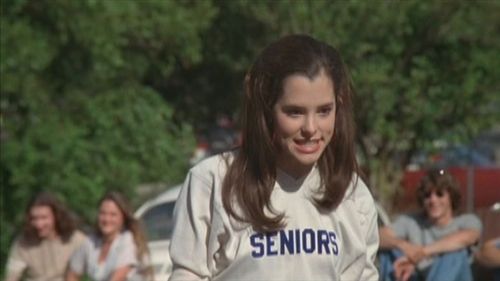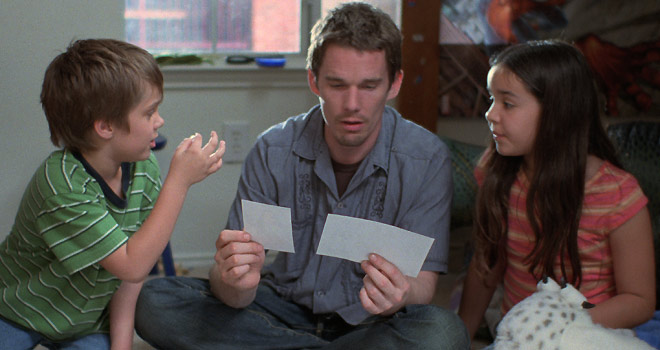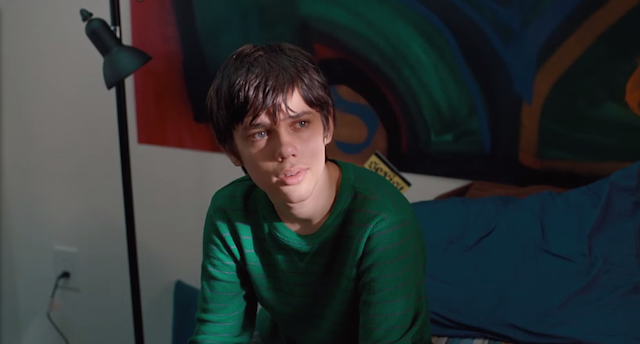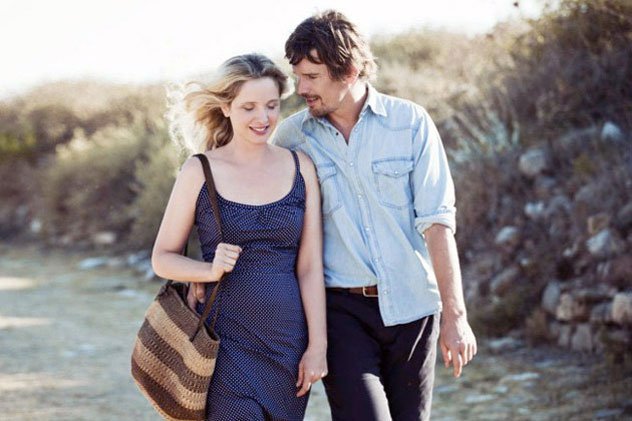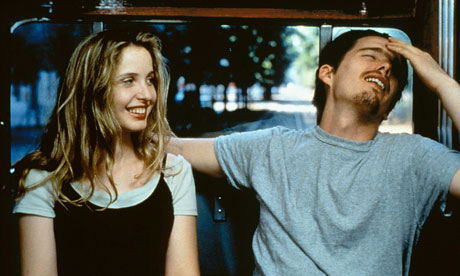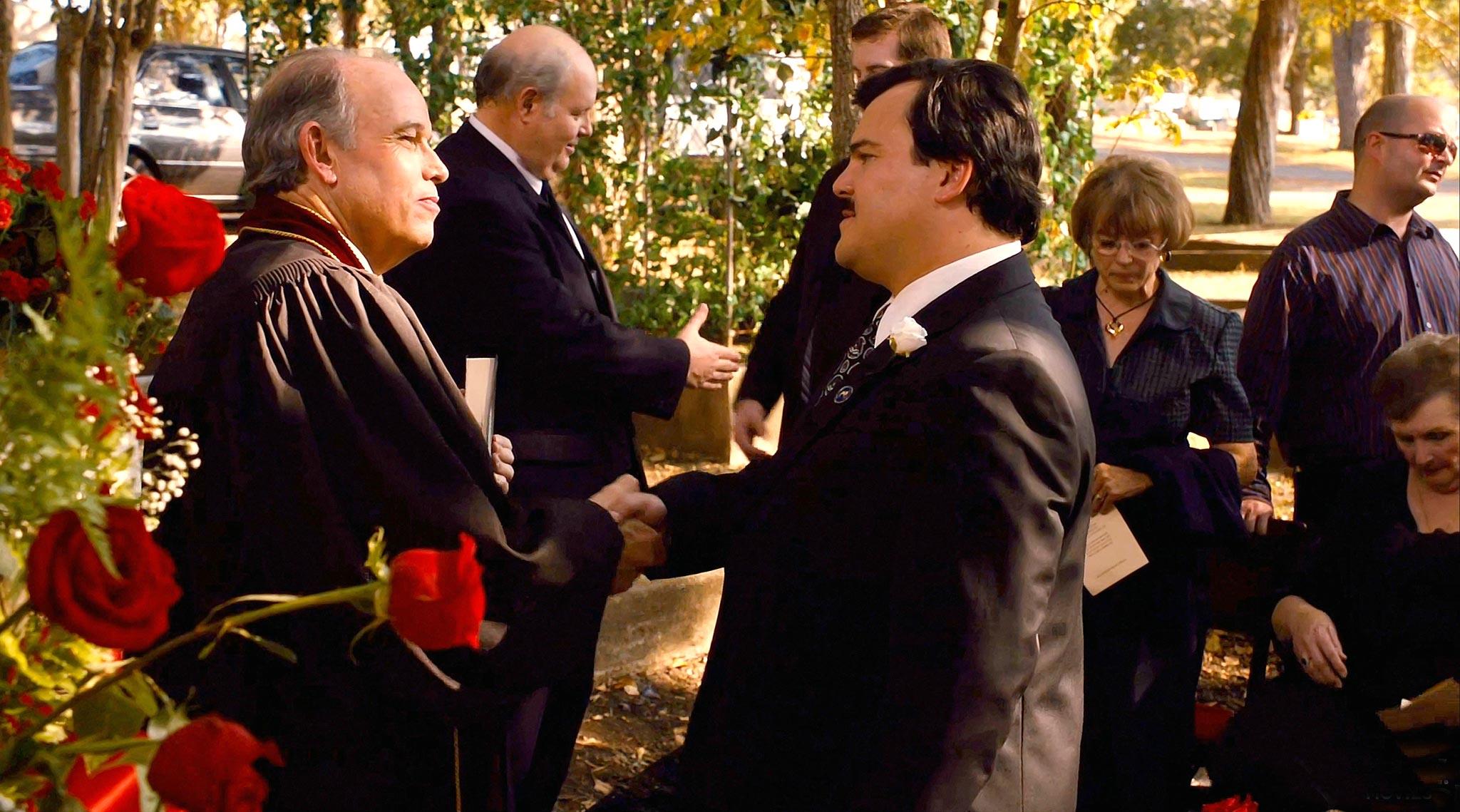
Richard Linklater’s sexy, funny thriller Hit Man is all about self-invention, and the story, with its twists and turns, is one of the year’s great crowd-pleasers.
Gary Johnson (Glen Powell) is a FAKE hit man for the police; when the cops are tipped off that someone wants to arrange a murder-for-hire, they send in Gary wearing a wire, pretending to be a professional assassin, to record the incriminating words and collect the payoff.
This is Gary’s side gig – he is a decidedly uncool philosophy professor, who drives a Civic and is essentially a male cat lady. His personal life is so non-existent that his sympathetic ex-wife suggests that he “see someone”; Gary thinks she means a therapist, but she explains that he should see “a woman”.
Obviously, he pretends to be someone else when he acts a a faux killer. Once, he adopts the supercool persona of fictional hit man Ron. Dressing in a cool leather jacket with new haircut and stylish shades, Gary learns that life is a lot more fun as Ron. He attracts the attention of beautiful Madison (Adria Arjona) in circumstances where he can’t reveal his true identity as Gary. Gary, as Ron, and Madison begin a torrid affair, and then things get out of hand…I won’t spoil the plot, but it becomes a twisty thriller.
Hit Man is plenty enjoyable as a comic thriller, but co-writer and director Richard Linklater also probes the process of self-invention. Gary is a good guy himself, but he is more popular with his colleagues and his students as the fictional Ron, and wouldn’t otherwise be able to attract Madison. And just who is Madison – has she reinvented herself, too?
There existed a real Gary Johnson. Linklater and Powell co-wrote the screenplay from Skip Hollandsworth’s magazine profile of the real Gary in Texas Monthly, and, of course, add plenty of invented sex and murder for embellishment.
The actual Gary Johnson worked in Houston, but Linklater set Hit Man in New Orleans, and those who love the Crescent City as I do will recognize many locales. There really is an intersection of Piety Street and Pleasure Street in New Orleans, and Linklater playfully drops in a shot of the street sign without comment.
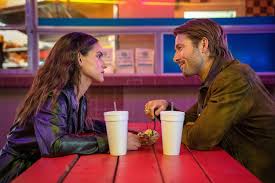
Glen Powell is exceptionally good as an Everyman plunged into, first, a scary cops and robber game, and then a real life-or-death entanglement that he must navigate with his wits in real time. Of course, Powell has lots of fun portraying a character who is himself a master of disguise, immersing himself in a bevy of fictional characters.
Adria Arjona is a real discovery. She’s able to play Madison so that Gary/Ron and we see her as a needy and vulnerable victim, then as an independent bad ass, and we finally wonder if she is a femme fatale. It’s a smart and secy performance as a smart and sexy, smokin’ hot, character.
Austin Amelio is hilarious as the unrepentantly sleazy, crooked cop Jasper.
Richard Linklater, is unsurpassed as an American filmmaker. After all he made Boyhood, which I rate as the best film so far in the 21st century, and our greatest romantic trilogy (Before Sunrise, Before Sunset, Before Midnight). Not to mention his groundbreaking use of interpolated rotoscope in Waking Life and one of the trippiest drug movies, A Scanner Darkly. He kicked off the whole body of work with the generational time capsule Dazed and Confused, along with the infectious comedy School of Rock and the underrated Bernie.
Linklater isn’t trying to top Boyhood or the Before movies here, but he’s at the top of his game with Hit Man. I can’t imagine anyone not enjoying Hit Man. Must See.,

